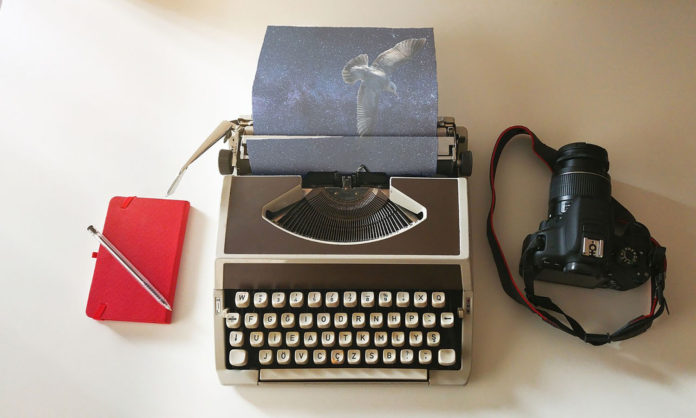
A post on Industrial Scripts shares a list of 70 (seventy!) literary devices you can use in your writing. Sure, we’ve all heard of these, but do we use them? It’s nice to have them all in a handy list.
The article breaks down the list into two categories: ‘literary elements’ and ‘literary techniques’. “Literary elements are the fundamental components that make up your story. These include plot, themes, or characters,” it states. “Literary techniques are the specific methods writers use to make their writing more interesting, engaging and effective.”
Items 1 – 34 are elements, such as plot, climax, flashback, protagonist, theme, and point of view. Beginning at #35, we have the literary techniques, including the familiar metaphor, symbolism, imagery, allusion, oxymoron, slang, euphemism, and alliteration.
Some of our favorite less familiar terms:
- Cacophony: the use of sound and dialogue to create a sense of chaos or disorientation.
- Adynaton: a figure of speech in which the speaker describes a highly unlikely situation in an exaggerated way.
- Antiphrasis: a figure of speech in which a word or phrase is used in the opposite sense to its usual or intended meaning.
- Anaphora: a device used to highlight a point by repeating a word or phrase at the beginning of consecutive sentences or clauses.
- Antanaclasis: a figure of speech in which a word is repeated in the same sentence but with a different meaning the second time.
- Echolalia: rthe repetition of a phrase or line of dialogue from a previous scene.
- Chiasmus: when the words of a sentence are repeated in reverse order, for dramatic or comedic effect.
- Anacoluthon: a figure of speech in which a sentence is broken off in the middle and re-started in a different direction.










